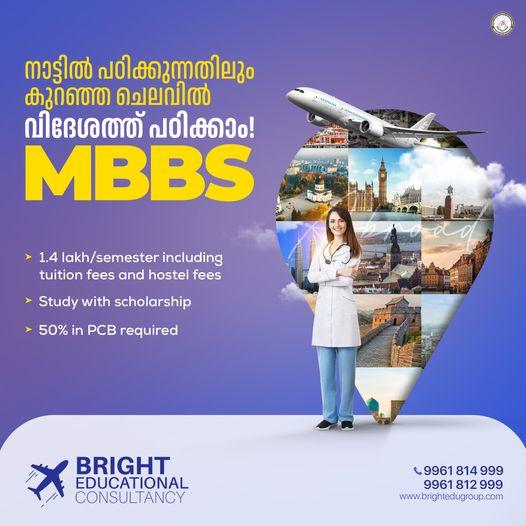The healthcare industry is one of the fastest-growing sectors globally, and its backbone lies in paramedical professionals. Paramedical studies serve as a gateway for individuals who aspire to make a meaningful contribution to healthcare without pursuing traditional medical degrees. This guide will provide insights into paramedical studies, the types of courses available in India, and their career prospects.
What Are Paramedical Studies?
Paramedical studies focus on training individuals to assist doctors and healthcare teams by providing clinical, technical, and support services. These courses encompass a range of specialized fields such as diagnostics, emergency medical care, rehabilitation, and more.
Paramedics are integral to healthcare systems, ensuring timely diagnosis, treatment, and rehabilitation for patients. With advancements in medical technology, the demand for skilled paramedics is at an all-time high.
Importance of Paramedical Studies
- Bridging the Gap in Healthcare
Paramedics play a critical role in addressing the shortage of qualified healthcare professionals, especially in rural and underserved areas. - Quick Entry into the Workforce
Most paramedical courses are short-term, enabling students to enter the workforce faster than traditional medical degrees. - Diverse Career Opportunities
From lab technicians to physiotherapists, paramedical studies open doors to numerous specializations in healthcare. - Lucrative Career Options
Paramedics are well-compensated, especially in specialized roles and urban settings.
Popular Paramedical Courses in India
India offers a wide array of paramedical courses, ranging from certificate to postgraduate levels. Here are some popular ones:
1. Diploma and Certificate Courses
- Diploma in Medical Lab Technology (DMLT): Focuses on diagnostic testing in laboratories.
- Diploma in X-Ray Technology: Prepares students for roles in radiology departments.
- Certificate in Emergency Medical Technician (EMT): Trains individuals to handle emergency medical situations.
2. Undergraduate Courses
- Bachelor of Physiotherapy (BPT): Covers therapeutic treatments and rehabilitation.
- B.Sc. in Medical Laboratory Technology (MLT): Involves in-depth study of laboratory diagnostics.
- B.Sc. in Radiology and Imaging Technology: Focuses on diagnostic imaging techniques.
3. Postgraduate Courses
- M.Sc. in Medical Lab Technology: Advanced studies in laboratory diagnostics.
- Master’s in Public Health (MPH): Prepares students for leadership roles in public health.
4. Specialized Paramedical Certifications
- Certified Dialysis Technician: Focuses on kidney-related treatments.
- Certified Cardiac Care Technician: Trains individuals in cardiac diagnostic and therapeutic procedures.
Eligibility Criteria for Paramedical Courses
The eligibility requirements vary depending on the level of the course:
- Certificate/Diploma Courses: Typically require a Class 10 or 12 pass, often with a focus on science subjects.
- Undergraduate Courses: Require completion of Class 12 with Physics, Chemistry, and Biology (PCB).
- Postgraduate Courses: Require a bachelor’s degree in a relevant field.
Top Institutions Offering Paramedical Courses in India
India is home to several prestigious institutions offering paramedical education:
- All India Institute of Medical Sciences (AIIMS), New Delhi
- Christian Medical College (CMC), Vellore
- Manipal Academy of Higher Education, Manipal
- St. John’s Medical College, Bengaluru
- Amrita Institute of Medical Sciences, Kochi
These institutions provide state-of-the-art facilities, experienced faculty, and exposure to real-world medical scenarios.
Career Opportunities After Paramedical Studies
Paramedical graduates have a plethora of job opportunities in hospitals, diagnostic labs, research centers, and NGOs. Popular career options include:
- Medical Laboratory Technician: Performing diagnostic tests.
- Radiology Technician: Handling imaging equipment.
- Physiotherapist: Assisting in patient rehabilitation.
- Emergency Medical Technician: Responding to medical emergencies.
- Dialysis Technician: Operating dialysis machines for kidney treatments.
Scope of Paramedical Courses in India
India's healthcare sector is projected to grow significantly, with an increasing emphasis on quality healthcare. Paramedical professionals are in high demand across private and public healthcare systems. Moreover, the rising popularity of medical tourism has created additional opportunities for paramedics.
Advantages of Pursuing Paramedical Studies in India
- Affordable Education: Compared to many countries, India offers cost-effective education.
- High Demand: India faces a significant shortage of healthcare workers, ensuring steady job prospects.
- Global Opportunities: Many Indian paramedical graduates find employment abroad, particularly in countries like the UAE, UK, and Australia.
Challenges in Paramedical Education
While paramedical studies offer numerous benefits, challenges exist, such as:
- Lack of Standardization: Quality of education varies between institutions.
- Limited Awareness: Many students are unaware of the scope and potential of paramedical careers.
Efforts are underway to address these challenges, with the government and private sectors investing in healthcare education and infrastructure.
Tips for Aspiring Paramedical Students
- Research Thoroughly: Understand the different specializations and choose one that aligns with your interests.
- Focus on Practical Skills: Look for programs that emphasize hands-on training.
- Stay Updated: Keep up with advancements in medical technology.
Conclusion
Paramedical studies are a promising avenue for students passionate about healthcare but not inclined towards traditional medical degrees. With a range of paramedical courses in India, aspiring professionals can find programs tailored to their interests and career goals. As the healthcare sector continues to expand, the demand for skilled paramedics is set to rise, making it a lucrative and fulfilling career path.
Whether you’re drawn to diagnostics, therapy, or emergency care, paramedical studies provide the knowledge and skills needed to make a tangible difference in the lives of others.

